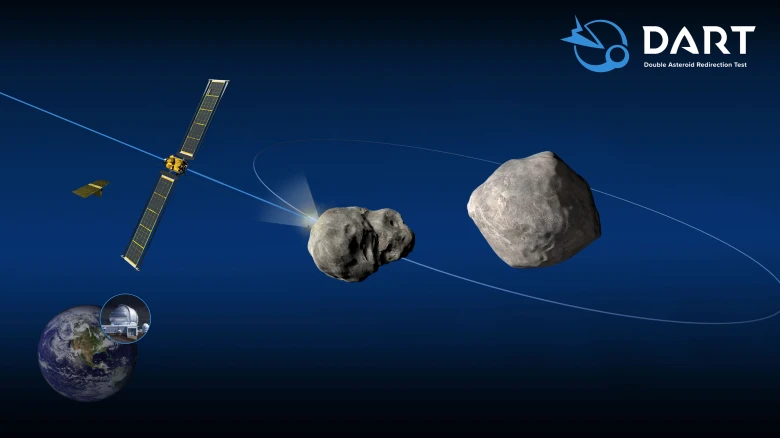Regional

Digital Desk: The US Space Agency NASA has created a spacecraft
that will purposefully collide with a small asteroid named Dimorphos. Although
the asteroid poses no threat to Earth, it was chosen to demonstrate that
dangerous incoming rocks can be deflected by deliberately crashing something
into them.
The Double Asteroid Redirect Test (DART)
spacecraft will strike an asteroid not far from Earth like a battering ram on
September 26. The project's goal is to protect the planet from asteroid
collisions.
On Wednesday, the space agency posted on
Twitter, saying, "Choosing the scenic route . As the DART Mission approaches
its planned collision with Dimorphos, an asteroid moonlet that poses no threat
to Earth, the spacecraft's imager captured a picture of Jupiter and its four
largest moons."
As the DARTMission approaches its planned collision with
Dimorphos, an asteroid moonlet that poses no threat to Earth, the spacecraft's
imager captured this image of Jupiter and its four largest moons.
The Didymos Reconnaissance and Asteroid Camera for Optical
Navigation, or DRACO, aboard NASA's DART mission has taken hundreds of
photographs of stars as it prepares to collide with the binary asteroid Didymos
on September 26.
The images give the Johns Hopkins Applied Physics Laboratory (APL)
team, which is in charge of the project for NASA, the information they need to
help with ongoing spacecraft testing and simulations leading up to the
spacecraft's kinetic crash with Dimorphos, Didymos' moon.
In a press conference on September 12, Nancy Chabot, DART
coordination lead at the Johns Hopkins University Applied Research Laboratory,
stated, "The DRACO images, I just want to stress, are going to be pretty
spectacular."
"You'll be approaching an asteroid that no one has ever
seen before," Chabot continued. "For that final image, you'll see
things that are tens of centimetres in size, and then it'll cut off. That
sounds really interesting to me "She continued.
Leave A Comment